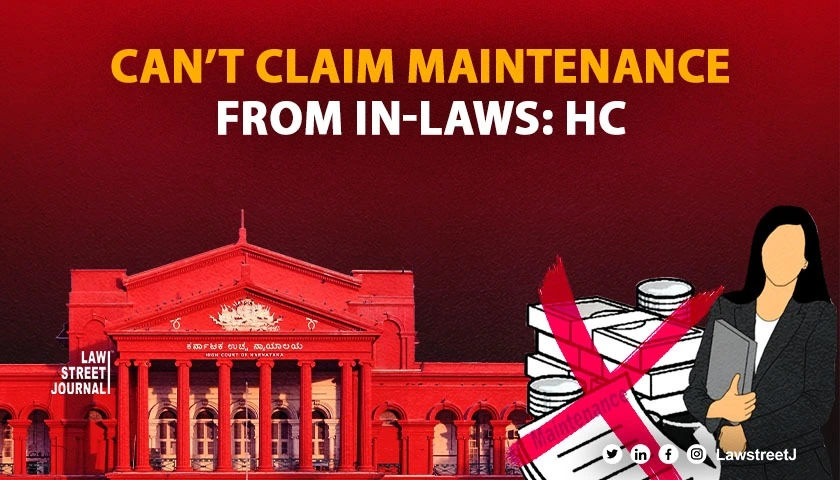DHARWAD: A daughter-in-law cannot claim maintenance from her parents-in-law, the Karnataka High Court has categorically stated while exploring the legal contours of Section 125 under the Code of Criminal Procedure.
On close reading of the provision under Section 125 of Cr.P.C., a daughter-in-law cannot lay a claim against her parents-in-law. Provisions of law envisage that a wife can lay a claim for maintenance. Likewise, parents can maintain a petition against their major children. So, also minor children can lay a claim, Justice V Srishananda of the High Court observed.
The Court was considering a revision plea moved by an elderly couple. In this case, respondents, Tasleem Jamela and her children claiming to be the wife and children of Late Khaja Mainudden Agadi, filed a petition under Section 125 of the CrPC seeking for grant of maintenance on the ground of after the death of Khaja Mainudden Agadi; the respondents being the parents-in-law failed to maintain the petitioners.
The subordinate court allowed the plea by granting sum of Rs.20,000/- per month to the first petitioner and sum of Rs.5,000/- to the petitioner Nos.2 to 5. Aggrieved, the couple knocked the doors of the High Court.
Advocate Kavita Jadhav, representing the revision petitioner reiterating the grounds urged in the petition, vehemently contended that the Magistrate lacked jurisdiction to try the petition filed by the respondents herein under Section 125 of Cr.P.C., and sought for allowing the revision petition.
Advocate Prashant Mathapati, for respondent No.1 contended that after the death of Khaja Mainudden Agadi, husband of the first respondent and father of the respondent Nos.2 to 5, revision petitioner being the parents-in-law failed to take care of the welfare of the respondents and therefore, awarding of maintenance is just and proper and sought for dismissal of the revision petition.
In the absence of any power vested in the Court under Section 125 of Cr.P.C., to entertain a petition filed by the daughter-in-law against her parents in law is not proper, the high court said while allowing the revision petition.
However, this wont preclude the respondents to proceed against the revision petitioners in further appropriate relief, it added.







![Karnataka High Court: Cabinet Rank Status Not Equivalent to Ministerial Position [Read Order]](/secure/uploads/2023/09/lj_2318_fc1b99b7-aeed-472b-836e-33750bedb394.jpg)


![Woman living in adultery cannot claim maintenance: Karnataka High Court [Read Order]](/secure/uploads/2023/10/lj_3083_Women_living.jpg)






